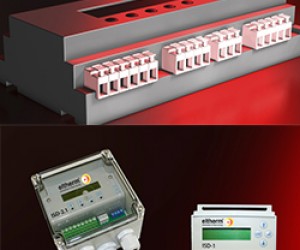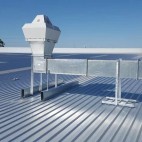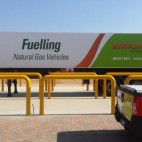A multitude of South African industries including food and beverage (Food & Bev), lubricant, bitumen, petrochemical and automotive will in the coming winter months again be faced with the drawbacks of colder ambient temperatures wreaking havoc on its manufacturing, processes and operational efficiencies.
Electrical heat tracing (EHT) can overcome these challenges by keeping products at an optimal temperature, lowering viscosity and ensuring that it is easier to transport around the plant during the colder months.
Explains Giles Maynard, general manager of eltherm South Africa, a global EHT supplier: “Electrical heat tracing can assist plant and process managers to alleviate stubborn viscosity sensitive products and processes. This also ensures that pumps don’t malfunction due to cavitation and pipes don’t get blocked, mitigating costly repairs and maintenance.”
The term viscosity refers to the time it takes for an amount of product to run through a pipe. For example, water has a low viscosity as it flows more freely than honey. Liquids like honey and oil have a higher viscosity because it contains more complex molecular structures.
Temperature can manipulate the viscosity of liquid. When the temperature drops, liquids like syrup develop a higher viscosity and become more difficult to pour. However, when it is heated, the molecules become more excited and begin to move which lead to lower viscosity.
EHT lowers the viscosity of many processes as it acts as a compensating heat source to maintain or raise the heat in pipes, tanks, surfaces and other vessels. It effectively replaces the heat loss in the process and can therefore be used to prevent pipes from gelling or freezing, whilst maintaining the low viscosity of the process on plant equipment.
Colder days and the resultant higher viscosity can also impact domestic water supply as well as the reliable drainage of rain and waste water, leading to freeze damage and ultimately frozen and burst pipes.
“To prevent freeze damage, electrical heat tracing can be installed on these pipes, preventing them from freezing without any additional insulation. A customised, self-regulating heat tracing solution is developed, installed and monitored to ensure pipes are warm enough throughout the winter months,” says Maynard.
EHT can maintain and lower the viscosity of liquids in many industries and applications such as:
- Resins, epoxies and adhesives;
- Petrochemical industry;
- Bitumen;
- Food & Bev such as glucose, chocolates, fats, vegetable and palm oils and other syrups;
- Automotive manufacturing processes such as glues and oils; and
- Brewing – maltose and dextrose.










